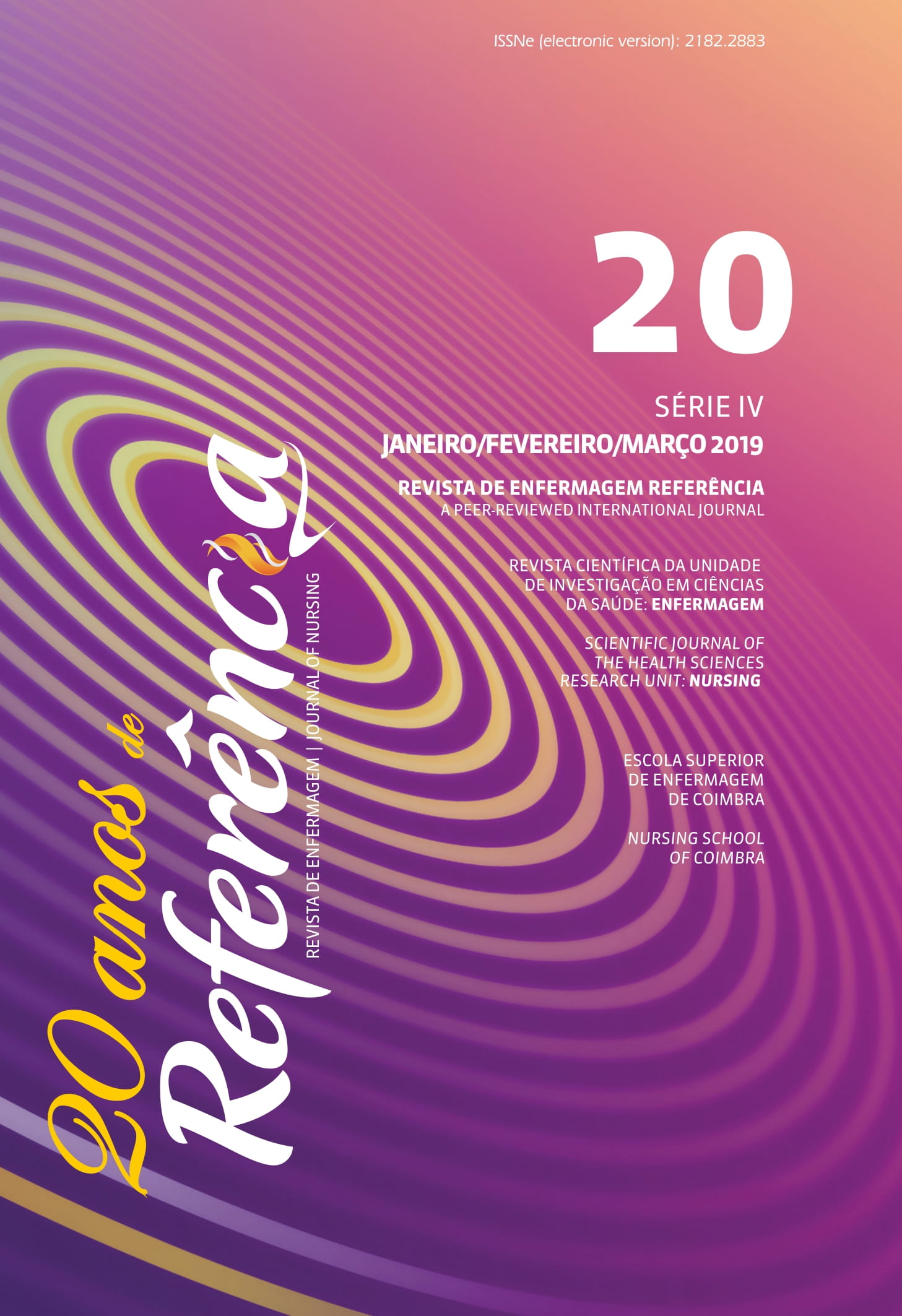Building trust to childbirth: assessment of a nursing intervention programme
DOI:
https://doi.org/10.12707/RIV18073Keywords:
prenatal education, labor, obstetric, self efficacy, nurse midwivesAbstract
Background: The self-efficacy of the woman during labor influences its perception and affects her satisfaction with the childbirth experience. Several studies have shown that childbirth preparation classes need to integrate and reinforce this concept.
Objective: To assess the effectiveness of the Build Trust to Childbirth programme in the perception of labor self-efficacy of pregnant women.
Methodology: Longitudinal, quasi-experimental study, with pre- and post-test with repeated measures. Conducted in an institution of northern Portugal. Sample of 66 pregnant women in the experimental group and 55 in the control group. The Childbirth Self-Efficacy Inventory was used.
Results: The self-efficacy expectations increased very significantly over time in the experimental group (F(1.81; 118) = 37.26; p = 0.000). There were no statistically significant differences between the groups (F(1; 119) = 3.39; p = 0.068).
Conclusion: The programme promoted a significant increase in labor self-efficacy of the pregnant woman, with no significant differences with the control group.
Downloads
References
Bandura, A. (1997). Self-efficacy: The exercise of control. New York, NY: Freeman.
Baptista, M. N., Santos, K. M., & Dias, R. R. (2006). Autoeficácia, lócus controlo e depressão em mulheres com câncer de mama. Psicologia Argumento, 24(44), 27-36
Cunqueiro, M. J., Comeche, M. I., & Docampo, D. (2009). Childbirth Self-Efficacy Inventory: psychometric testing of the Spanish version. Journal of Advanced Nursing, 65(12), 2710–2718. doi:10.1111/j.1365-2648.2009.05161.x
Howharn, C. (2008). Effects of childbirth preparation classes on self-efficacy in coping with labor pain in Thai primiparas. Austin, TX: University of Texas.
Ip, W. Y., Chan, D., & Chien, W. T. (2005). Chinese version of the Childbirth Self-Efficacy Inventory. Journal of Advanced Nursing, 51(6), 625-633
Lamaze International. (2013). History. Recuperado de http://www.lamazeinternational.org/History
Lei n.º 142/99 de 31 de agosto (1999). Diário da República n.º 203/1999, Série I-A. Assembleia da República. Lisboa, Portugal.
Lowe, N. K. (1993). Maternal confidence for labor: development of the Childbirth Self-Efficacy Inventory. Research in Nursing and Health, 16, 141-149
Neves, A. J. (2010). Auto-eficácia da grávida no parto: Adaptação e validação da escala “Childbirth Self-Efficacy Inventory (CBSEI)” (Dissertação de mestrado). Universidade Católica Portuguesa, Instituto de Ciências da Saúde, Porto, Portugal.
Pajares, F. (2002). Overview of social cognitive theory and of self-efficacy. Recuperado de http://www.uky.edu/~eushe2/Pajares/eff.html
Pender, N. J. (2011). The health promotion model manual. Retrieved from https://deepblue.lib.umich.edu/bitstream/handle/2027.42/85350/HEALTH_PROMOTION_MANUAL_Rev_5-2011.pdf
Pereira, M., & Almeida, P. (2004). Auto-eficácia na diabetes: Conceito e validação da escala. Análise Psicológica, 3(22I), 585-595
Prata, A. P., Santos, C., & Reis Santos, M. F. (2009). Autoeficácia e experiência de parto. Referência, 2(10, supl.), 235.
Prata, A. P. (2016). Construir a confiança para o parto: desenvolvimento e avaliação de um programa de intervenção em enfermagem (Tese de Doutoramento). Universidade Católica Portuguesa, Instituto de Ciências da Saúde Lisboa, Portugal.
Romano, A. M., & Lothian, J. A. (2008). Promoting, protecting, and supporting normal birth: A look at the evidence. Journal of Obstetric, Gynecologic, and Neonatal Nursing, 37(1), 94-104. doi:10.1111/j.1552-6909.2007.00210.x
Zinken, K., Cradock, S., & Skinner, T. (2008). System for Self-Efficacy Training (ASSET): Assessing treatment fidelity of self-management interventions. Patient Education and Counseling, 72, 186-193






















